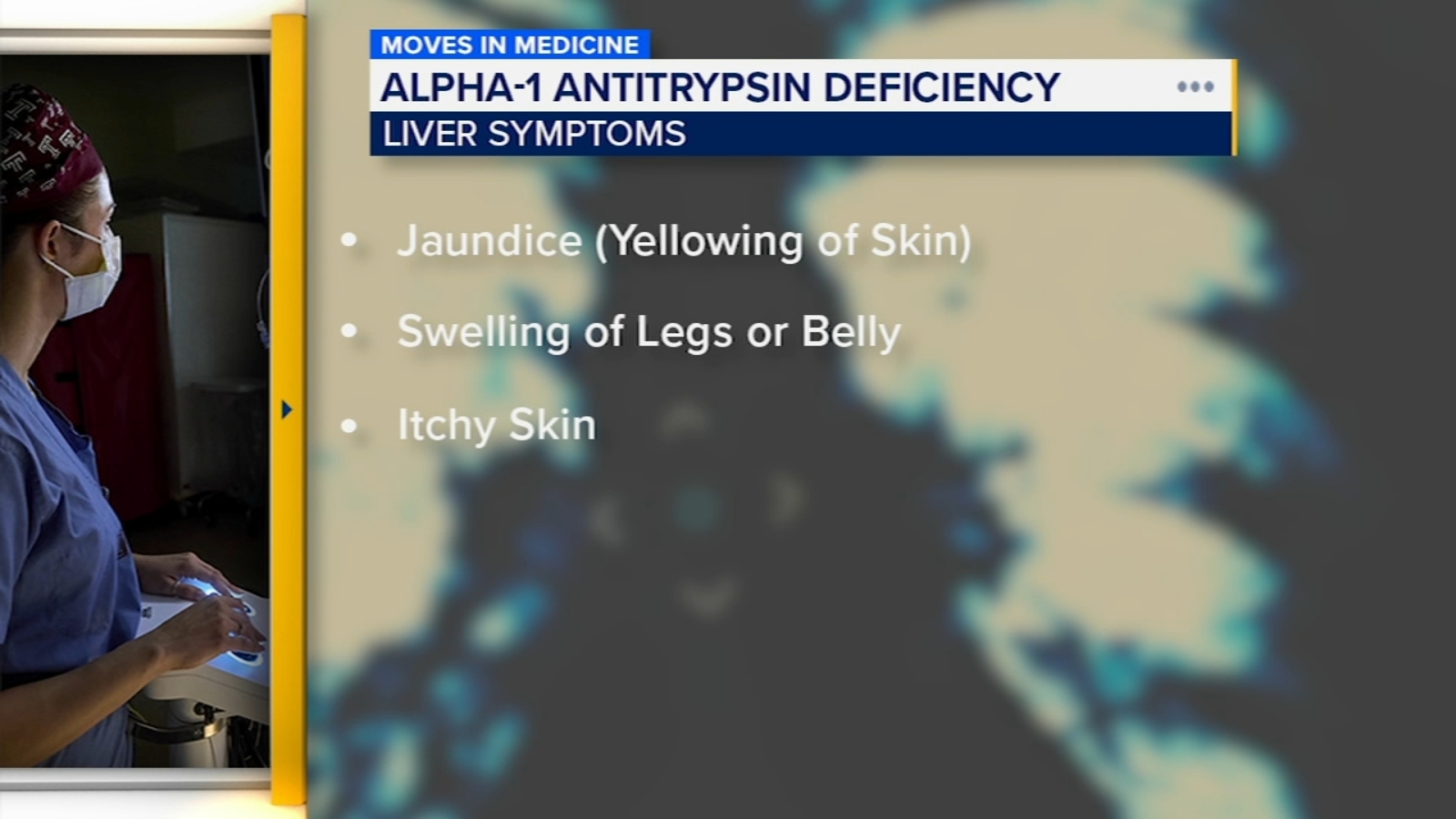Environmental factors like smoking or chemical exposure are usually the culprit in lung disorders like COPD or emphysema. However, some of those cases are actually driven by genetics.
We inherit our appearance and even personality traits, from our families.
We can also inherit medical conditions such as Alpha-1 Antitrypsin Deficiency.
“Alpha 1 is a protein that our body makes. It’s part of a pathway that helps us to repair the lungs,” says Dr. Andrew Gangemi, a Temple Health thoracic specialist.
Dr. Gangemi says people with mutations in the SERPINA 1 gene don’t make enough Alpha 1 to protect the lungs.
“You have this unregulated destruction, which can happen in the lungs, causing emphysema,” he explains.
That emphysema causes symptoms like shortness of breath, wheezing, a chronic cough, frequent chest colds, and fatigue.
Alpha 1 deficiencies can also affect the liver, causing jaundice, swelling of the legs or belly, or itchy skin. Some people have mild symptoms or none at all.
“We also get very suspicious when we start to see people with a strong family history of emphysema, you know, especially if it’s happening at early ages in a lot of other family members,” Dr. Gangemi.
Alpha 1 deficiencies can first show in a person’s 20s, but are more common in the 30s, 40s, or early 50s.
Sometimes, the deficiencies cause specific patterns on CT scans.
“But the real way that we have to diagnose it is with both blood testing and genetic testing,” says Dr. Gangemi.
If tests confirm the Alpha-1 antitrypsin deficiency, the most important step is – Don’t smoke, because there’s not enough protein to protect the lungs.
If treatment is needed, there’s replacement therapy, using protein taken from the blood of healthy donors. That slows down the loss of breathing capacity.
“Getting treatment early tends to lead them to higher amounts of functional lung tissue compared to those who have not been treated with this protein,” Dr. Gangemi notes.
And he says the treatment generally causes minimal, or no side effects.
Although there’s no cure for Alpha 1 deficiencies, with early recognition and treatment, people with them can still lead long lives.
Copyright © 2025 WPVI-TV. All Rights Reserved.
